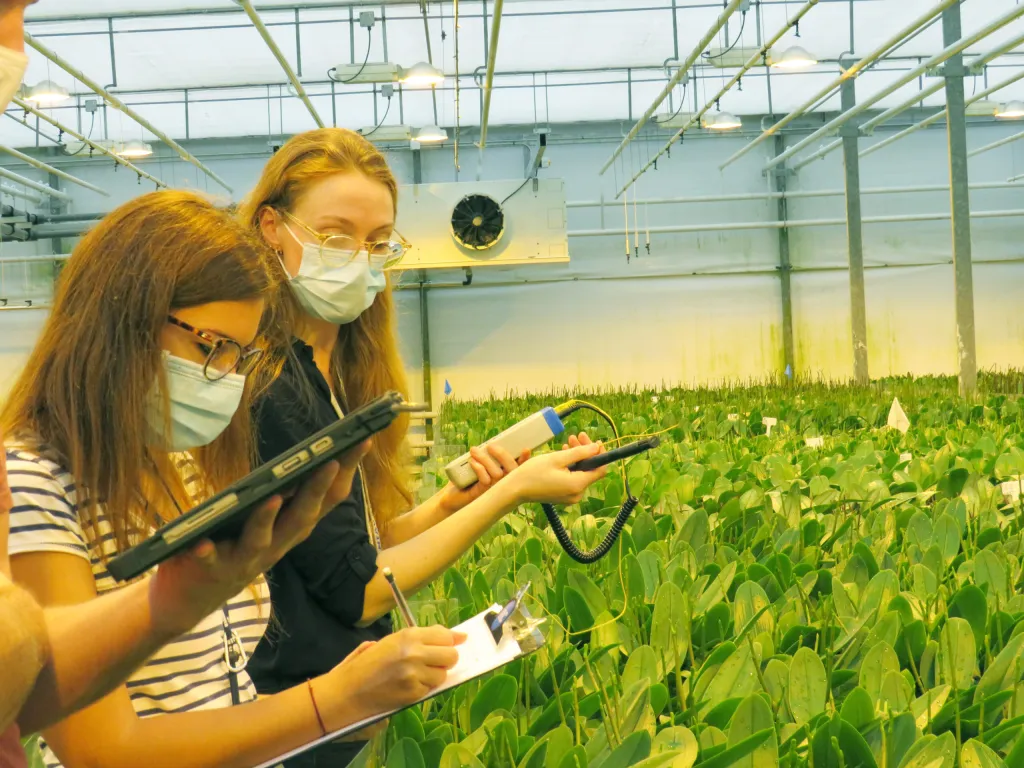
Challenge: Integrating sources of greenhouse-specific data to improve energy decision-making Solution: Test precision software in commercial settings and optimize software Impact: Novel tool that will support grower energy management capabilities
David Arkell knows the appetite for local food produced year-round is only getting bigger.
The President and CEO of 360 Energy, a thought leader in energy and carbon strategies, also knows the greenhouse industry is poised to grow to sate our collective hunger in a corner of the world that doesn’t have a long growing season.
Problem is, production of food under glass is an energy-intensive endeavour that’s both costly for a greenhouse operator’s bottom line, and the planet, with increased carbon emissions.
Arkell is determined to provide relief in both cases with a secure cloud-based software that can collect energy-related data directly from greenhouse control systems and empower growers, owners, and investors to use the information to increase the profitability and sustainability of their business.
“If you can get data, analyze it and put it in front of clients so they can understand it, clients can do great things, and achieve measurable results,” Arkell says.
The challenge is getting the powerful 360 Energy software platform in greenhouse operators’ hands so they can control and reduce energy costs, in turn helping Arkell expand his business as well.
Arkell has been working on it for five years and recently turned to Niagara College’s Horticultural & Environmental Sciences Innovation Centre (HESIC) for help determining what growers want and need in such software, so they’ll be compelled to use it.
“If you can get data, analyze it and put it in front of clients so they can understand it, clients can do great things, and achieve measurable results.”
~ David Arkell, 360 Energy
For the past six months, 360 Energy has been working with a handful of HESIC researchers led by Kimberley Cathline, HESIC Research Program Manager, to determine how to make the software appealing to greenhouse growers worldwide. That includes those in Southwestern Ontario, which is home to the largest greenhouse sector in North America and where energy is an operator’s second-biggest expense.
It’s the first time the company has worked with NC, but not the first time it’s turned to post-secondary researchers for help. There’s a reason for that, Arkell says.
“We have been working with colleges and universities for years because they have the expertise we don’t have. You get outside perspective,” he explains. “To be clear, I’m not a grower. I don’t have that knowledge base to know what’s required so it’s been very helpful.”
Arkell chose HESIC because of its connection to the horticulture industry through NC’s academic programs.
“They actually teach growers, so if they teach growers, they understand what the industry wants and needs,” he says. “We can build a product but if you don’t understand what a customer wants or needs, there’s a good chance you’re going to fail.”
Work recently wrapped up on this particular project. Arkell has begun working with another team in the Research & Innovation division to identify market opportunities and competition for their software.
“With the work we have done with the two different groups, it’s been very positive,” Arkell says. “Would I do it again? Absolutely. If people do not make use of academic expertise, shame on them. I don’t want my competitors to do it, but there is a real value to it.”
This project was funded by the Government of Canada through the Federal Economic Development Agency for Southern Ontario.
Visit Niagara College’s Horticultural & Environmental Sciences Innovation Centre page to learn more about its resources and capabilities.

